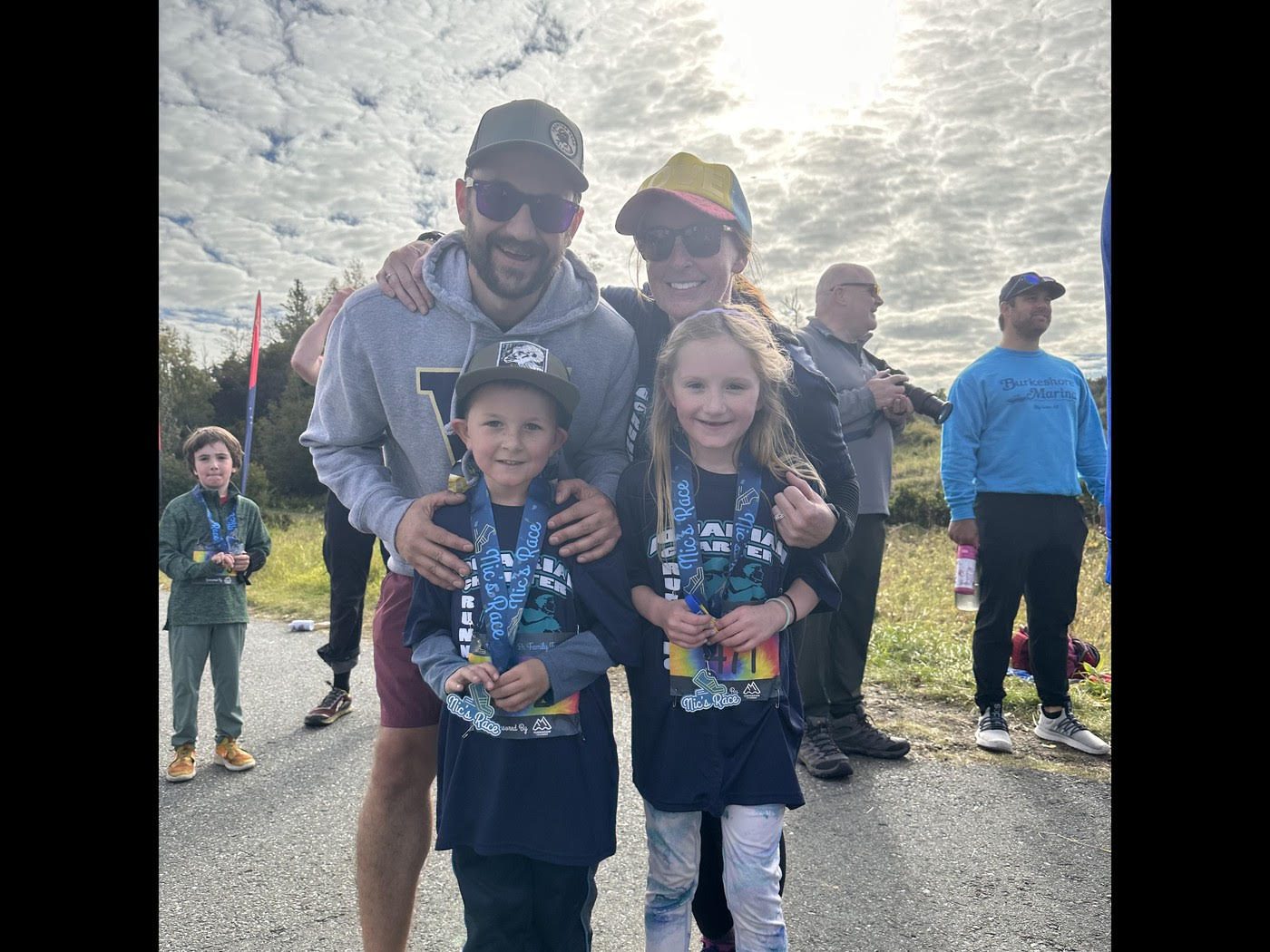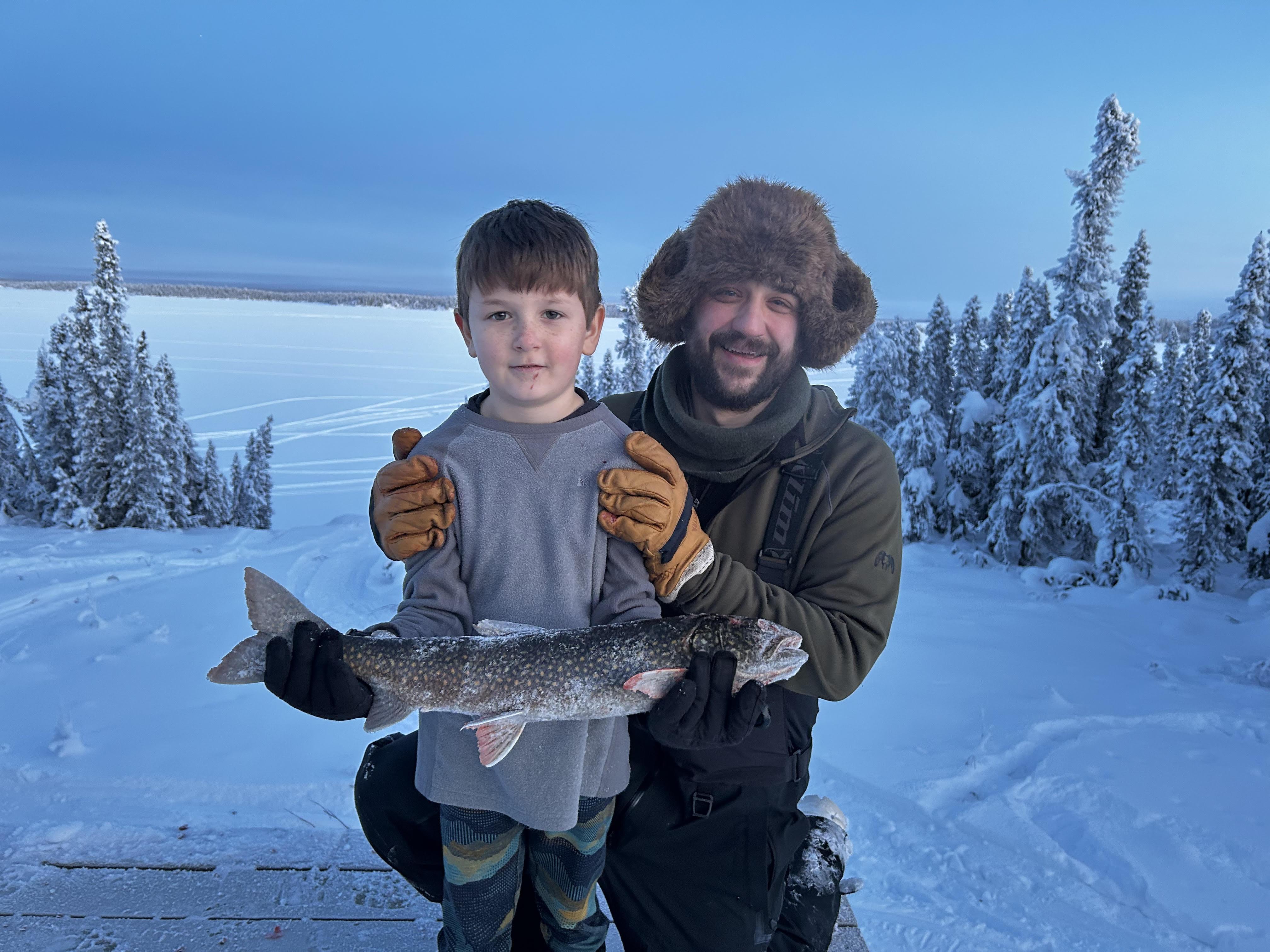
Ryan Ossenkop with his family Ryan Ossenkop
Amanda Dale • January 6, 2025
Ryan Ossenkop started as Vice President of Operations at the Alaska Humanities Forum - his first job in the nonprofit sector - in November 2022. We sat down with Ryan to hear about his transition, his first two years, and what makes the Forum feel like the Forum from an Operations perspective.
How did you initially hear about the Forum?
I actually worked with the Forum as an auditor at BDO. I was really confused at first, like what does this entity do? I remember reading the mission and looking into it and I was so curious. I just thought, what an interesting place where your work is facilitating experiences and creating community connection. That’s unheard of in the for-profit world. It just stuck with me.
What led to your decision to take a position at a nonprofit?
Honestly I had never considered the nonprofit world. To me that was a thing that other people went and did and it wasn’t really an option for me. I don’t know why exactly - it just never seemed to be something I would go do. I come from a family where my dad started a small business so I’m used to seeing someone own a business and realize the related profit.

Ryan Ossenkop with his family Ryan Ossenkop
But I was struggling in the for-profit world. I had been there about 10 years and I was having a hard time with the fact that everything comes back to the bottom line. I think the bottom line can be a healthy way for companies to manage their actions, if it’s driven by how well you’re serving your customers. But this idea we have at the Forum of being able to make decisions based on people, the community, our partners, and being in a place where that’s OK to do and there aren’t repercussions for not focusing solely on the bottom line - this is a new concept to me. I really appreciate that about this organization.
Our responsiveness to our team is also different. We tend to weigh employees’ perspectives and what they’ll be feeling and experiencing in a situation whereas before it was more like, that’s the reality and employees will have to deal with that.
Can you give an example of that?
In my prior workplaces for parents it was, ‘you need to have a backup plan’. If something happens, it’s unacceptable for an employee to call me and say I can’t come in because my child is sick. If you do that I’d have to say, “I told you you are supposed to have a plan B - what happened to your plan B?” If I came in like that at the Forum, I would have been fired on my second day! (laughing)
I was getting stuck having to follow policies I didn’t agree with. Coming here and finding people whose values align with mine, now I can have these conversations and know that considering people’s feelings is valid.
Is there anything about how we run our Operations here that feels particular to the Forum?
Operations here is different in the sense that everybody is going to be engaged in decision-making. Whenever we are making any kind of major change we’re going to involve the full staff in that decision - at a staff meeting, at work meetings - we really don’t operate in a vacuum and don’t have decisions coming down the chain. It can take more time this way but being a small organization we are able to manage it pretty well.
I also think it’s easier for all staff to have buy-in because we’re smaller. We have a group of people here who really care about the organization’s policies and enjoy the thought exercise - what does this mean for people? What are the implications?
The biggest thing I’ve learned here is how limited my perspective is and how helpful it is to learn my blind spots.

Ryan Ossenkop fishing with his son. Ryan Ossenkop
What are some of the hard things?
There is a lot of reporting and a lot of work that goes into maintaining all of our financial systems in an appropriate way. My work here is a lot more accounting-heavy than prior roles. I’m an INFP (Myers-Briggs Type Indicator) - I’m not meant to be an accountant but I became one! Staring at a spreadsheet for a few hours isn’t my natural place. But at least now it’s a few hours at a time instead of all day, every day.
You’ve said it took about two years to make the decision to take a nonprofit job. Tell me about some of the conversations that led to this decision.
This was a decision made with the family in the interest of the family. I don’t think that my prior situation suited me and so I didn’t feel like I was coming home like the person I should and that was affecting my family time. I didn’t feel like I was able to be the father I could be because I had all these things weighing on me. I was working with my therapist to think about, what are my needs and values? And with my wife, because you have to be realistic. I can’t quit my job and I have to be responsible to my family.
For me, the Forum bridged the gap because it’s an opportunity to leverage my business and accounting background and earn a good living for my family, but also to surround me with people with similar values and be a place where I feel happy and healthy.
On staff, you are known as someone who is always excited to learn new things and who cares about the people in every process. What was it like, facilitating your first staff meeting?
I was nervous because it’s such an eclectic and interesting group of people here. I think it was about something fairly straightforward like reviewing benefits. I remember being curious how things would land with people. I was really genuinely interested and curious what that meeting would feel like. I definitely got a lot of feedback afterwards (laughing).
I learned pretty early on that getting hit in the blind spots was something that was going to happen a lot here. I think people here are empowered to talk and it feels like it matters to give feedback.
Does it bother you how much we tease you about your fancy professional clothes and colorful socks?
Ha! No way… a fair ribbing is a fair ribbing.
The Alaska Humanities Forum is a non-profit, non-partisan organization that designs and facilitates experiences to bridge distance and difference – programming that shares and preserves the stories of people and places across our vast state, and explores what it means to be Alaskan.
November 13, 2025 • MoHagani Magnetek & Polly Carr
November 12, 2025 • Becky Strub
November 10, 2025 • Jim LaBelle, Sr. & Amanda Dale